How AI SEO Tools Scale Agile Solutions? The use of AI SEO tools means that your team can move faster and smarter by offloading a lot of mundane SEO tasks that previously consumed hours of time. The result is heightened content quality and the ability to monitor “live” search performance and be proactive in response to search engine changes.
Leveraging AI for SEO can help nimble teams carry out effective solutions in a data-driven and more flexible SEO environment. Automatic content optimization, competitive analysis or live monitoring allow teams to identify new trends and be able to pivot quicker .
AI does the drudge work and lets marketers be creative with their strategy. The result is better rankings, and frankly, faster growth as well. As search engines rely increasingly on AI, traditional SEO becomes less effective.
These AI SEO tools help to bridge that gap, scraping the data and automating the work which scrapes and automates fits well into an agile workflow. Teams remain competitive and are just much more proactive in an online world that no longer waits for you.
Best AI SEO Software-How to Choose?

Understanding AI SEO Tools for Agile Scaling
They combine AI and machine learning to accelerate and improve search engine optimization. It enables businesses to move quickly and deal with a lot of information, so that teams can make better decisions much faster.
To be able to integrate AI into your SEO efforts, you need to have a grasp of what applied AI can do, how it can disrupt the process and how it can outperform traditional SEO.
Defining AI SEO Tools and Their Core Features
AI SEO tools are simply pieces of software developed to harness the power of Artificial Intelligence in automating and improving various SEO related tasks. Typically you will see keyword research, content analysis, competitor tracking, and site audits.
They analyze data with machine learning from large datasets, identify patterns and tell us what they think should be done next. Some go as far as creating content outline or making on-page adjustments to things like meta tags and internal links.
Automation eliminates most manual labor and slashes time and dramatically increases speed and efficiency. The continuous loop of iterative search allows for on-the-fly feedback loops, real- time insight that allow SEO teams to not have to spend all their time in the muck of data – rather, they are able to spend more time on strategy.
How AI SEO Enhances Scalability in Agile Environments
Scalability is important in agile SEO go as things change extremely fast and the updates never cease. Tools running AI work quickly, this means that teams can make decisions in short sprints rather than marathons.
AI discovers keywords and tracks competitors so that teams can get more promotional content out faster. It also monitors rankings and user activity, providing real-time feedback.
These are tools that cut projects into small bites, so that you can prototype and iterate cheaply. That flexibility corresponds well to agile principles, so that teams can rapidly adjust to changes in algorithms or the market without a hitch.
Key Differences Between Traditional and AI-Powered SEO
Over the decades, the adoption of traditional SEO itself has been slow for two reasons; it requires manual research and planning, and that work takes a lot of time and is often inflexible. It is a long process, whereby work piles up in a “waterfall” model over the course of months.
This is where AI-powered SEO comes in to turn the tables on automation and real-time data. Teams progress in parallel in multiple areas and don’t have to wait weeks for reports; insights just present themselves. The use of AI for drafting and optimization makes creating content much more efficient.
Teams also use predictive analytics in order to anticipate rather than just react to change. Unlike traditional SEO, AI tools can provide continuous learning and avoid bottlenecks for agile teams.
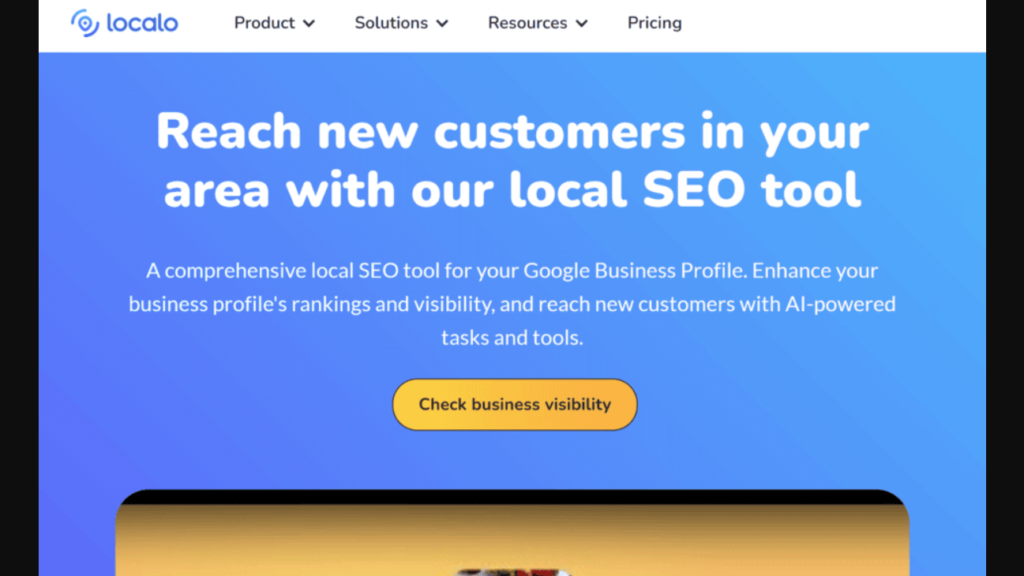
Agile SEO: Frameworks and Workflow in Scaling Search Success
Agile SEO is supported by these rigid processes, processes that make it easy to move fast and get higher in this search engine machine. Being able to benchmark, have short work cycles, and are constantly updated help to keep everyone on the same page as the algorithms and markets fluctuate.
Core Principles of Agile SEO Methodology
Flexibility and working quickly are critical components of agile SEO. Teams focus on little wins that can be measured instead of these giant terrible projects.
Decisions must be data-based. No more guesswork as teams consume the analytics in real time to shape their tactics. It’s ok to be open about what’s working and what’s not, as this is how we all learn.
Cross- functional working is also important. In this phenomenon, the burden is on the content creators, developers, and strategists alike. They reduce the “friction” of passing work off between siloed positions.
Implementing Sprints and Agile Workflows in SEO
Sprints break down the SEO work to be done into little, condensed, time frames – usually about a week or two. Every sprint focuses on things like updating keywords, tweaking content or fixing technical stuff .
Teams prioritize sprints, utilize task tracking tools and roles are assigned. Daily stand-ups help everyone stay in sync and enable quick discovery of blockers or the agility to pivot.
Automation and AI do the simple work and the people do the thinking and problem solving. In other words, more speed and better quality, the two things that we all aspire towards, no?
Continuous Iteration and Adaptation in Search Strategies
Search engines continually evolve, so SEO strategies must keep pace . Agile SEO is all about iteration – test, learn, tweak, repeat.
KPI’s are closely tracked by the teams and they also use feedback loops to identify what is working. They make changes in the content, structure of the material and its technical aspects. However does refocus as necessary in terms of their approach.
This also creates very little risk in the sense that it is a gradual evolution. They offer quick turn around when results aren’t as expected and SEO is always meting the business goals and needs that they use constant refinement.
AI SEO Tools Scale Agile Solutions-Pros and Cons
| Category | Pros | Cons |
|---|---|---|
| Efficiency & Automation | Automates repetitive SEO tasks | Over-reliance on automation can reduce human creativity |
| Data-Driven Insights | AI tools analyze vast data sets to identify ranking opportunities and trends | Data accuracy depends on input quality; poor data can lead to misleading recommendations |
| Agility & Scalability | Enables teams to adapt SEO strategies quickly in workflows | Implementation complexity may increase with larger teams or multiple tools |
| Content Optimization | Enhances content quality by suggesting keywords, readability improvements | AI-generated content may lack originality or brand voice consistency |
| Performance Tracking | Provides real-time analytics and predictive insights to measure SEO ROI effectively | Requires technical expertise to interpret metrics |
| Cost & Accessibility | Reduces long-term costs by streamlining workflows and minimizing manual labor | High initial investment for premium AI SEO platform |
| Collaboration & Integration | Integrates with agile project management tools | Integration issues may arise with niche software |
Key Benefits of AI SEO Tools in Agile Contexts
In this context, using AI SEO tools can be a real advantage for nimble teams. They accelerate workflow, tighten decision making, and improve the quality of content. They pump out repetitive tasks, process data on the fly, and keep content in tune with the latest algorithm changes.
An SEO team that incorporates AI can, for example, capitalize on any trends they notice in search, to increase click-through and conversion rates.
Speed, Automation, and Productivity Gains
Automation reduces the time consumed in research, audits, reports and so forth that are typically a component of SEO. In minutes an AI tool can scan thousands of keywords and competitor pages – something that would take weeks for a human to do. That also allows more time for strategy and creative work.
The basic optimizations such as meta tags and internal linking ? AI does all of that as well, so the teams are relieved the burden of that. The pace of content production increases and teams can simply get drafts out there and iterate on them as quickly as possible to rise in the rankings and reduce bounce rate.
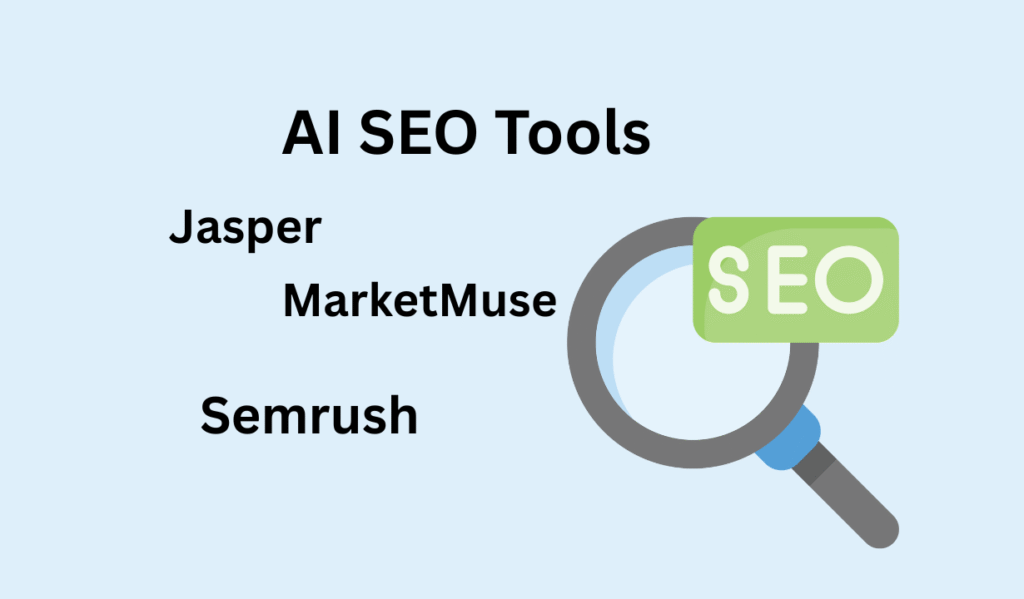
Real-Time Data Analysis for Decision Making
The analysis is continuous, because AI SEO tools monitor search patterns and algorithm changes constantly. The team has near real time data on how their keywords are performing, how users are engaging, and what competitors are or aren’t doing.
Content analysis at a higher level identifies holes and reveals the weak pages. Such feedback allows teams to act intelligently and data-based in order to adapt to search engine changes. Because algorithms are constantly changing, being able to pivot quickly is a must.
Improved Content Optimization and SERP Performance
Other AI-enabled recommendation tools enable more precise content- optimization. They can provide keywords, readability checks, and help keep things semantically relevant. They also give you briefs based off of top ranking pages, so that way writers know how to hit user intent without being too aggressive on the keyword end.
In other words, increased CTRs and conversion. While maintaining focus on the fact that searches are changing, when teams recognize AI cues they are able to enhance engagement and rankings. The outcome is? Better content, to suite the relatively agile marketing goals.
Top AI SEO Tools for Scaling Agile Solutions
To move quickly, agile SEO teams require resources that can aid in faster planning, more precise on-page optimization, better content creation, and a better sense of the competitive landscape. The right platforms cut down on time, keep teams concentrating, and enables them to pivot to search trends as they unfold.
Surfer SEO for On-Page Optimization
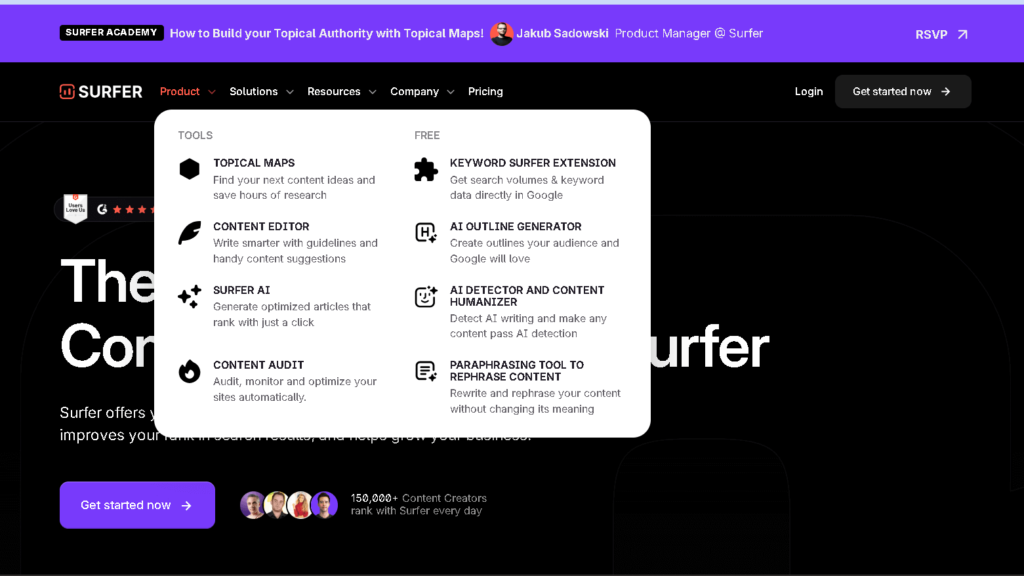
It also has a robust content editor that offers writers real-time guidelines based on keyword research and competitor analysis. It analyzes the top ranked pages and offers suggestions for word count, use of keyword, headings and other tips. SEO-friendly content that matches what search engines are currently looking for can be developed by teams.
The competition analyzer of SERP will show you also the most important factors for the search engines. Insights from Surfer SEO can inform rapid, data-driven adjustments by agile teams. It’s also compatible with AI writing assistants which means cuts can be quickly made without loss in quality.
MarketMuse for Content Planning and Gaps
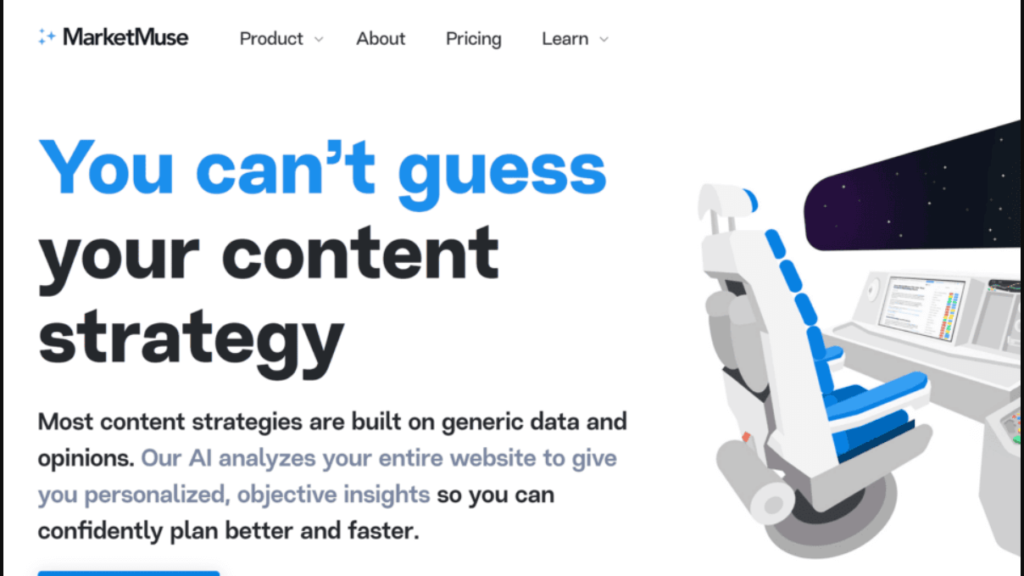
MarketMuse excels in content gap discovery via topic modeling and keyword clustering. It automates performing content audits, allowing you to see where your team needs more coverage and which keywords to chase after next.
The AI generated briefs from the tool provides writers with specific direction in terms of semantics, relevance, and intent. Translation: less time for research but more comprehensive coverage. MarketMuse monitors this progression of optimization so that team’s can have a view of the ROI on the efforts of their content.
Jasper and Jasper AI for AI-Generated Content
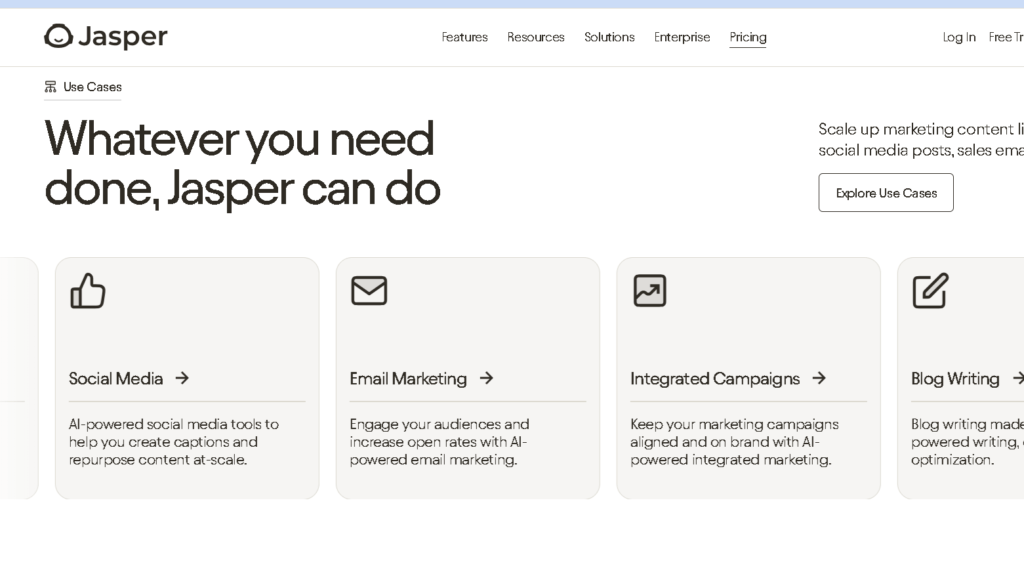
This tool is helping teams create everything from blog posts to product descriptions to social media copy and do it fast. It is able to provide relevant, coherent writing suggestions by employing large trained language models.
Jasper is intended as a tool to accelerate content generation through an AI writing tool with minimal human involved. Templates and customization can easily be built into to handle large outputs without sacrificing brand voice. It’s also compatible with SEO tools and editors so the workflow becomes even easier.
Frase for Competitive Briefs and Strategy
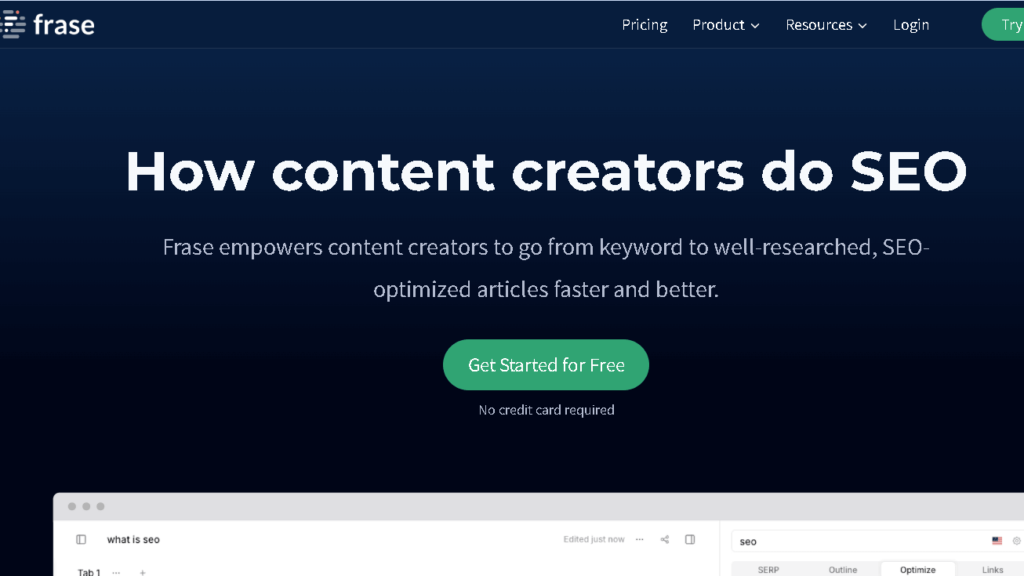
AI SEO Tool Frase gets closer to competitive research than most other tools do, and focuses in on content strategy by rooting around in top SERP results. It creates summaries of key highlights such as topics covered, questions asked, keywords used, and how competitors organize their content.
An AI writing helper below assists in the drafting and editing process – improving relevance and clarity through real-time SEO data. It is designed for for agile teams; meaning the ability to change briefs and strategies on a dime, and it also has analytics to give an idea of how to help your content perform against competitors.
Optimizing Content Creation and Automation in Agile Teams
“Agile teams need sharp tools to maintain quick content production that stays on strategy”. It plans, produces, and checks quality while ‘keeping things on track’.
Other include normal things such as keyword grouping and internal linking among others, these features save teams the manual dirty work.
Generating Content Briefs with AI
These AI generated briefs can save researchers time as well by quickly scanning top pages and keywords. Among them are word count recommendations, semantic keywords, and top subject headings based on the user queries.
A focused brief is given to writers for each sprint so they know what matters. AI-associated keywords were clustered into themes to allow beyond-strategic and SEO-friendly planning.
The recommendations on content clusters can therefore be found and support it in explicitly recommending the use of internal linking. This maintains a strong site structure and allows search engines to understand page relationships – without the team having to sift through the data manually.
Scaling Content Production Using Automation
The automation removes the mundane repetitive tasks from the team so they can think more creatively . They’ve also run automated generated drafts, designed to optimize writing, and updated metadata via performance data and updated algorithms for example .
Rapidly produce multiple iterations for different keywords/user intents on the part of a given team. They A/B test content pieces during sprints, and iterate the content for the next sprint.
Automatic internal linking and schema markup also help to manage technical SEO without dragging things down. This enables continuous improvement of the content without disrupting the rhythm of the sprint.
Ensuring Brand Consistency with AI-Driven Tools
However, content goes flying out the door and it’s hard to maintain a consistent brand voice. They are monitored by AI- controlled tools that scan for brands protocol adherence in tone, style, key words, etc.
These tools help catch problems prior to publication so that inconsistencies can be corrected by the staff. And it even gives suggestions about ways to make the writing clearer and more to the point for the user, helping with engagement.
The low costs and centralized quality control have enabled agile teams to produce large volumes of content in line with brand.
Advanced SEO Optimization: Technical, On-Page, and Beyond
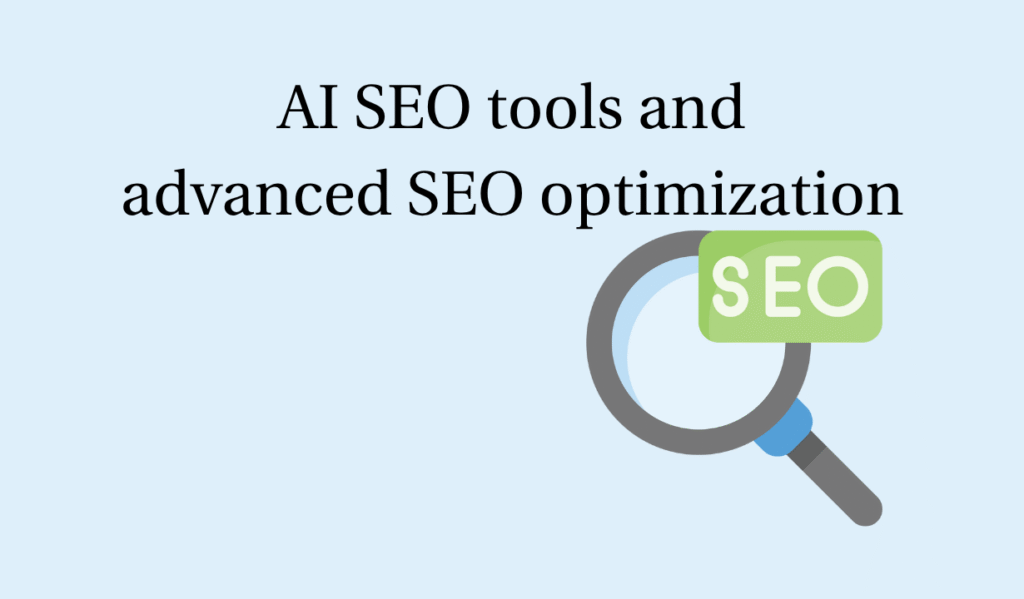
SEO is no longer just a series of small things. There is a comprehensive way to increase visibility, user experience and search engine authority, and it has to do with infrastructure, content, and connections.
Technical SEO Enhancements via AI
AI also can, for instance, perform more advanced technical SEO tasks such as crawling websites, identifying broken links, and increasing load times . They find problems such as duplicate content or sloppy redirects much sooner than a human could.
Automation via AI controls schema markup, XML sitemaps, and robots.txt files, to make sure that search engines can crawl and index them seamlessly. This translates into improved crawlability and adherence to new standards set forth by the algorithms.
Once a project is underway, continuous monitoring allows corrective action to be implemented immediately. This type of proactive strategy is aligned with the movement of agile workflows; it eliminates human labor related bottlenecks and maintains consistent performance. Technical SEO with the help of AI is also a must have for maintaining the health of a website and to make sure that your site continues to rank strong.
On-Page Optimization and Meta Descriptions
On-page SEO strategies are extrapolated from the top ranking pages by AI systems. They adjust meta descriptions, headings, and content design to make sure that it is going to be attractive in search results and will be in line with search intent.
When AI is generating meta descriptions it is so concise because AI is solely honing in on what the user is looking for, and the appropriate keywords. This makes the snippets feel more relevant and eye-catching in search listings.
AI refines the structure of the content as well, which consequently helps search engines understand, and enhances E-A-T (Expertise, Authoritativeness, Trustworthiness).
Automated content briefs generated from AI assist teams in maintaining messaging that is consistent and semantically relevant. This also means faster content updates while allowing agile teams to keep a strong on-page SEO game without sacrificing quality.
Backlink, Keyword, and Search Intent Analysis
Backlink analysis tools that employ AI are able to analyze link quality and profiles of competitors. This basically means relevant and strong backlinks will increase your domain authority much more quickly.
It’s no longer just about volume of keywords. AI organizes keywords by search intent and topic, enabling you to write content that fits a real person’s needs .
The more they know what AI answer engines do in response to queries, the more they may be able to adapt their strategies to rank better as search evolve . This combined with intelligent keyword and intent analysis provides a richer approach for increasing organic traffic and authority.
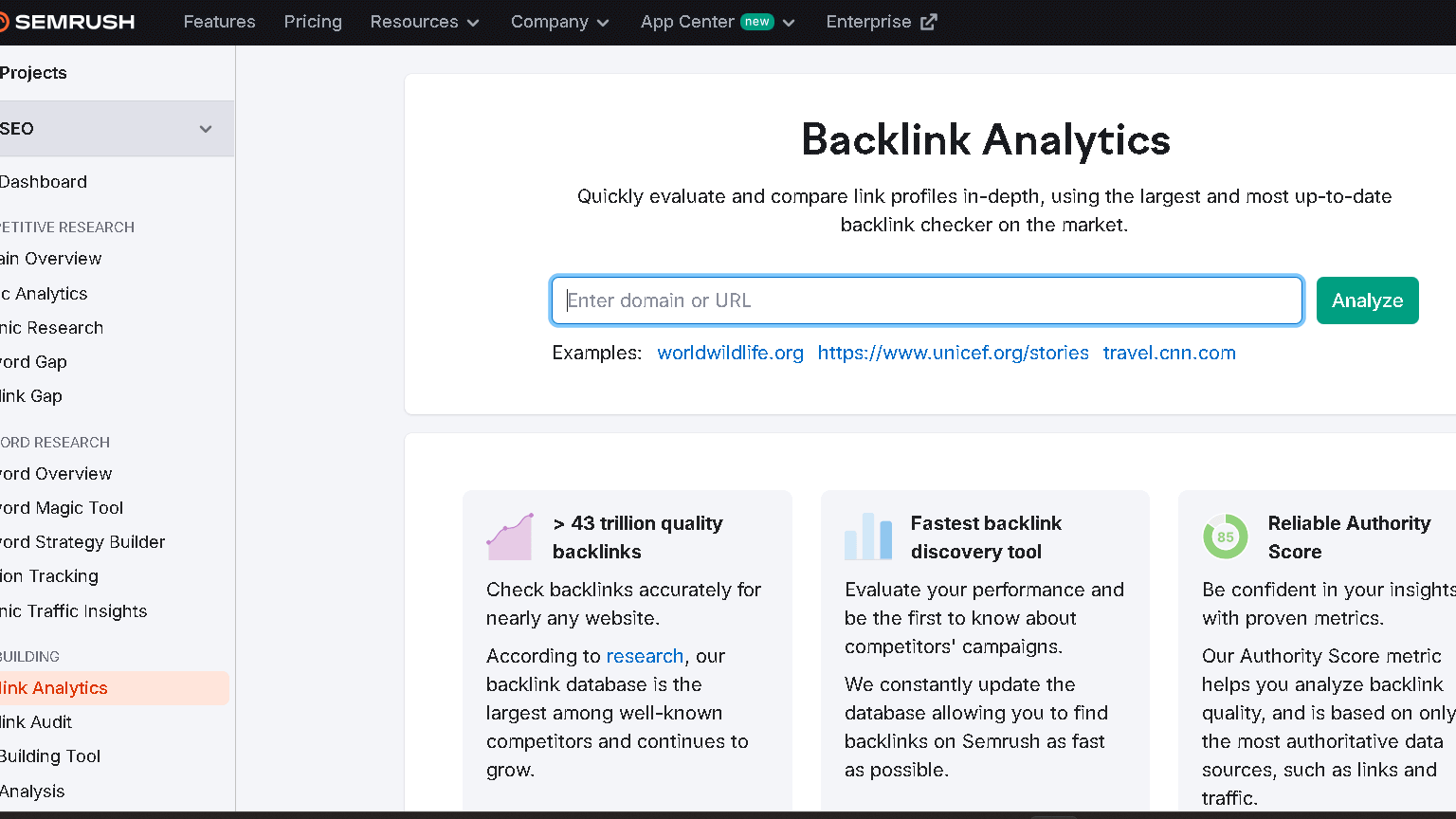
Integrating AI SEO Tools with Agile Digital Marketing Strategies
More so than you might think, making the most of AI SEO tools requires, again, some upfront coordination within your marketing workflows. Priorities need to match, data should be used to make content choices, and integration should be solved in order to streamline all processes to work for the user and for SEO.
Aligning SEO Initiatives with Agile Marketing
SEO goals should ideally be something that can be aligned with the scope of agile sprints and campaigns. But that requires setting specific User Intent goals and using AI to provide insights on content gaps.
Marketers and SEO specialists maintain consistent dialogue. Having fast feedback loops also enables teams to quickly change directions based on new upswinging trends or opportunities that AI reveals.
This is where AI steps in: by automating mundane SEO activities, it allows teams to be more agile in response to market changes. Such an arrangement strengthens both SEO, and general marketing, performance.
Data-Driven Content Improvements and SEO Metrics
The AI SEO tools can track your content’s performance, access huge data sets on user behavior and search trends, and analyze the most searched-for keywords. These numbers are then used by the teams to adjust the content to ensure it remains relevant.
Both hire marketers to observe the AI, looking for issues of “semantic relevance, topic coverage, and citation potential”. Such insights allow them to understand exactly what content lacks, and what they should tune to better reflect the search intent.
Content gaps were closed more rapidly as AI data assisted with fine-tuning. “Ultimately the end goal is real returns in the form of rankings, CTR’s, engagement so optimization actually means something and works”.
Overcoming Common Integration Challenges
Unfortunately, integrating those AI SEO tools isn’t always quaint. It can be stalled because of data overload, tool compatibility, or team management. Choosing platforms that integrate well with your existing maegtier stack also helps a lot.
So does training. Employees do need to have some level of literacy with the outputs of these AI systems; they need to be able to interpret the information, and understand what the suggestions are. It is important however, to delineate how we will use these tools.
Remove the middle management/ bureaucracy, but keep strategy in the hands of people. The point is to not over-rely on AI or to avoid AI altogether and still enjoy the advantages of agile, data driven SEO.
AI SEO Tools Scale Agile Solutions- FAQs
Some of these include AI SEO tools which expedite the process of SEO, among others by automating keyword research, modifications to content, and monitoring of how that content is performing. This means they can more quickly adapt to changing search engine algorithms and shifts in user behavior. This along with using agile practices is increasing teamwork and continuing the wave of improvement.
How can AI tools improve the efficiency of SEO in agile environments?
AI tools handle the less creative SEO work such as number crunching and content refreshes. This leaves more time for the strategy and creativity.
Using AI and having real-time data allows teams to make quick turns when the search engines move the needle. It simplifies decisions and cuts down on manual labor.
What are the best practices for integrating AI SEO tools within an agile framework?
AI tool workflows should align with team sprints and regular check-ins. Defining clear roles make it possible for all to collaborate on AI-powered insights.
Customizable AI platforms allow teams to quickly experiment with and adjust SEO strategies. Having it all integrated with the existing tools will help prevent work from becoming a hassle.
How does artificial intelligence enhance keyword research and content optimization?
AI searches through large sets of data to discover good keywords for user intent and competition. It identifies semantic relatedness beyond mere keywords.
AI provides structure, clarity, and semantic tag fixes. This helps AI search engines understand what your content is actually about.
What metrics should be used to measure the success of AI-powered SEO strategies?
Monitor engagement such as CTR, organic traffic, and search rankings. Visibility scores in AI ecosystems matter, too.
Conversion metrics and ROI on AI-based SEO give a sense as to whether the work is working. This is completed through monitoring sentiment and brand context.
Are there scalable AI solutions for small businesses looking to improve their SEO?
Definitely. Lots of AI SEO tools have tiered pricing and options for smaller budgets that include automated audits, content suggestions, and local seo assistance.
Small businesses can begin with the basics and grow into what more as costs become more manageable and as revenue increases.
What are the challenges of maintaining SEO rankings with AI tools during agile scaling?
Teams need to monitor closely as it can very quickly become inconsistent. I mean, frankly, you can let automation take over too much of it and you’ll lose those little insights or that creative spark that only humans know to highlight.
The data is also often inexact and the tools do not always integrate smoothly. Teams absolutely should double-check the decisions and remain engaged to them as they scale.

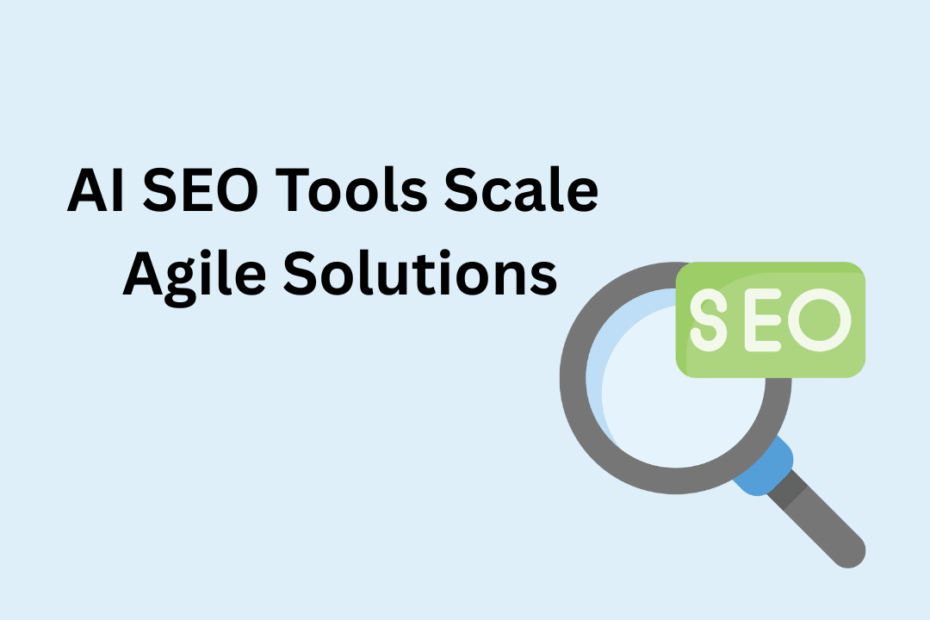



Your blog has quickly become one of my favorites. Your writing is both insightful and thought-provoking, and I always come away from your posts feeling inspired. Keep up the phenomenal work!
Your blog is a breath of fresh air in the crowded online space. I appreciate the unique perspective you bring to every topic you cover. Keep up the fantastic work!